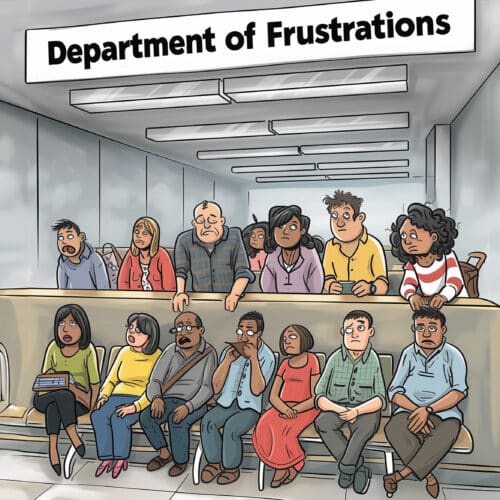“The truth you believe and cling to makes you unavailable to hear anything new.”
– Pema Chodron
Every human being who works with others faces challenging situations that can seem overwhelming. And if you are responsible for leading teams or organizations, the challenges multiply geometrically. This can render you sensitive when it’s not helpful and insensitive, where being more empathetic and listening would be extremely powerful. Mindfulness can provide a fresh perspective, helping you to see these challenges as manageable, as well as the appropriate path for handling (or delegating to others) those challenges, not to mention fulfilling opportunities for growth and impact, making the world a better place than how you found it.
“It ain’t what you don’t know that gets you into trouble. It’s what you know for sure that just ain’t so.”
– Mark Twain
Objective Inquiry: Understanding Your Own Story
 In Don’t Bite the Hook by Pema Chodron, a central message is about recognizing and questioning the narratives we create in our minds. Chodron teaches that our reactions to situations are often based on preconceived stories, and by identifying these, we can gain freedom from them.
In Don’t Bite the Hook by Pema Chodron, a central message is about recognizing and questioning the narratives we create in our minds. Chodron teaches that our reactions to situations are often based on preconceived stories, and by identifying these, we can gain freedom from them.
- The Power of Pausing: Chodron emphasizes the importance of taking a moment to pause before reacting. This pause offers space to observe our thoughts and decide whether to engage with them.
- Questioning Our Narratives: We often create stories in our minds about our experiences. Chodron suggests questioning these narratives to see if they are really true or just our interpretations.
Transform your executive approach:
Learn how mindfulness can elevate your leadership style today.
A Workplace Scenario: Shifting Perspective
Imagine a mid-level manager, Alex, who believes that a colleague, Jordan, is deliberately undermining him. This belief affects every interaction, creating a toxic work environment. However, upon reflection, Alex realizes that this narrative might be exaggerated. And he has never asked his colleague about the behaviors that have built this story in Alex’s head.
Mindful Inquiry for Alex:
- Pause and Reflect: Before reacting to Jordan’s latest actions, Alex takes a moment to breathe and observe his own thoughts.
- Question the Story: Is there concrete evidence of Jordan’s supposed undermining, or is it Alex’s perception? Is Jordan really targeting Alex or is there some other potential motivation for his behaviors?
- Open Communication: Alex decides to have a direct, open conversation with Jordan, seeking to understand her perspective.
- Reframing the Narrative: By questioning his own story, Alex opens up the possibility of a more collaborative and less antagonistic relationship with Jordan. It may or may not solve the problem of Jordan’s behaviors. But Alex will have learned the invaluable tool of reducing reactivity and managing his own internal world. If Jordan continues on a path of the behaviors troubling Alex and isn’t working on her own mindfulness, then Jordan can shift to setting goals based on a story that has been tested. I like a happy ending better, so I’m going to imagine that Jordan was unaware of the impact of her behaviors on Alex, asks him how she can work more productively with him, and they develop a communication plan designed to keep them both informed and their teams working in synchronous harmony.
A Simple Meditation: Gaining Perspective on Challenges
- Think of a current challenge you’re facing.
- Close your eyes and take a few deep breaths.
- Ask yourself: What story am I telling myself about this situation? Is it true?
- Visualize the problem as a thunderstorm with driving rain and constant lightning across a peaceful field from you, in the distance. The sun is shining on the meadow between, and all is well where you are. Now imagine the storm passing in the distance or just staying put. Thinking of the stories that rile us as thunderstorms in the distance is a way to remember they are just stories and that we can manage them.
- Reflect on potential solutions or positive outcomes. Envision a positive potential outcome and approach your solution with the mental attitude that it’s possible all will be well. And if it turns out not well, then all will be well anyway.

This meditation helps in realizing that many of our problems are magnified by our own perceptions. By viewing them through a lens of mindfulness, we can see them as they truly are – not insurmountable, but part of the ebb and flow of our professional lives.
Mindfulness is not just a practice but a journey toward a more composed, clear-headed, and compassionate way of living and leading. Whether it’s through observing the chatter in our minds, focusing on our breath, or questioning the stories we tell ourselves, mindfulness offers a pathway to not just cope with the challenges of executive life, but to thrive amidst them.
“The things that go wrong often make the best memories.” – Gretchen Rubin
Ready to transform your leadership?
Contact the PointerWise Team today!






